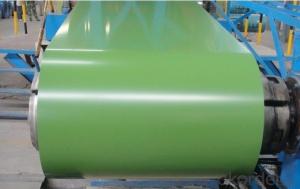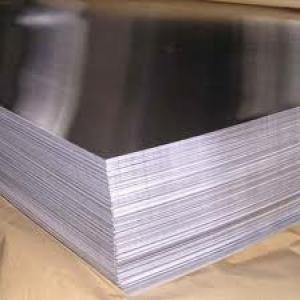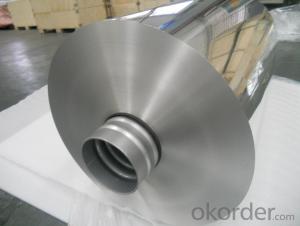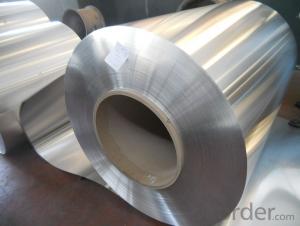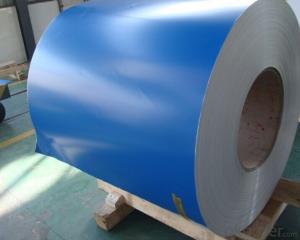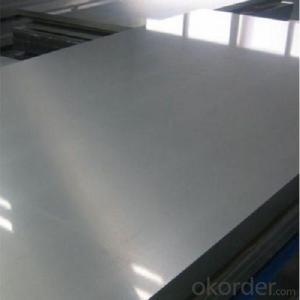Cold Rolled Steel Sheets Wholesale from CNBM
- Loading Port:
- China main port
- Payment Terms:
- TT OR LC
- Min Order Qty:
- 20 m.t.
- Supply Capability:
- 1000 m.t./month
OKorder Service Pledge
OKorder Financial Service
You Might Also Like
Item specifice
Product Description:
General Information of Cold Rolled Steel Sheet
The raw material of cold rolled steel sheet is high quality hot rolled product, and after pickling, continuous rolling, degreasing, annealing, skin pass, slitting and cut to length line etc. Along with it many kinds of new technology and new process of global cold rolling production have been applied. Therefore the quality of the goods could be guaranteed. The finished product has a variety of excellent capabilities, such as processing capability and smooth, flat surface. It’s widely used in outdoor and interior decoration, furnishing manufacturing, home appliance, automobile etc.
Specifications of Cold Rolled Steel Sheet
1) Grade: SPCC, SPCD, SPCE, DC01-06, St12, Super deep drawing
2) Standard: JIS G3141-1996, EN 10131-2006, DIN EN 1002
3) Thickness: 0.20mm - 3.0mm
4) Width: 600/1000/1250/1500 (mm) or per customer's request
Package of Cold Rolled Steel Sheet
Strapped with min three strapping strips, covered by anti-water paper and plastic film, fixed on the iron or wooden pallets by strapping strips and covered by plastic bag to prevent damage from transportation.
Applications of Cold Rolled Steel Sheet
1) For the further producing of hot dip galvanized steel products
2) Cold rolled Steel: Auto manufacture, Oil drum, Transformer's tank panel, Furniture etc.
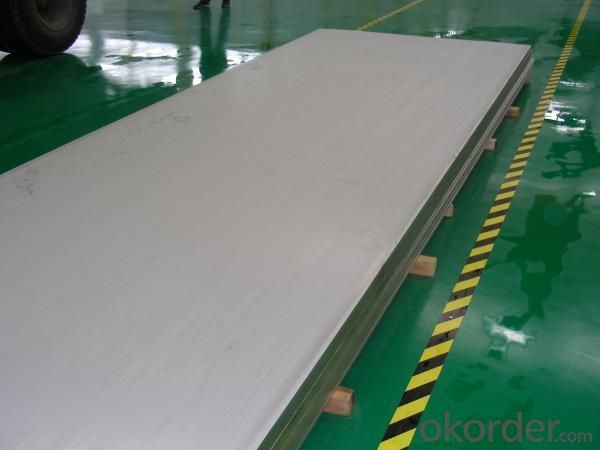
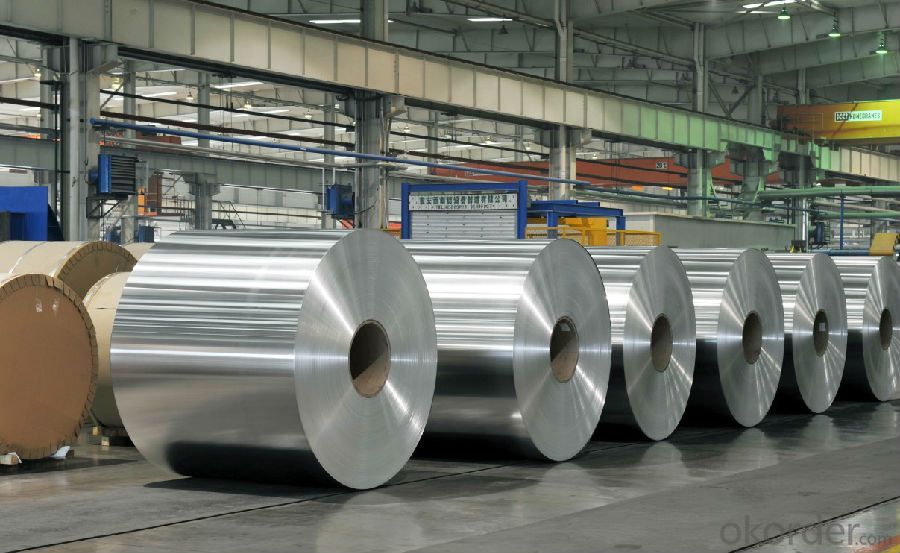
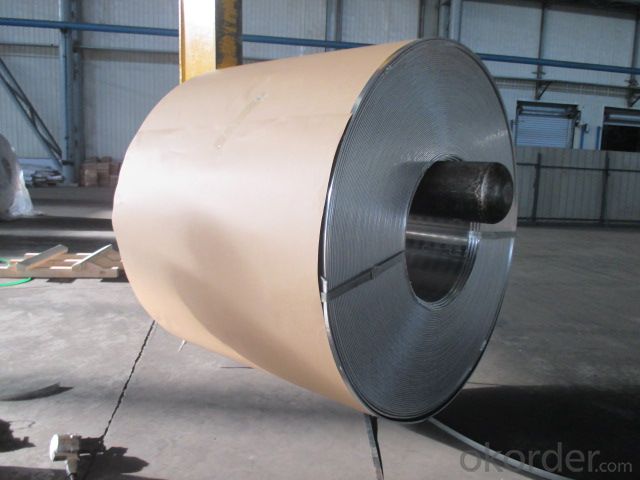
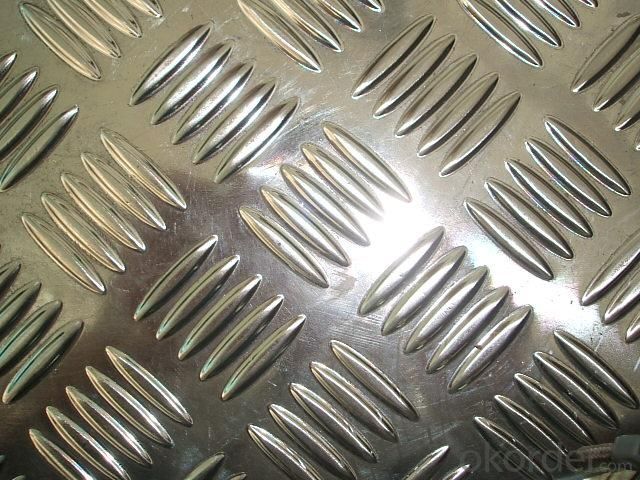
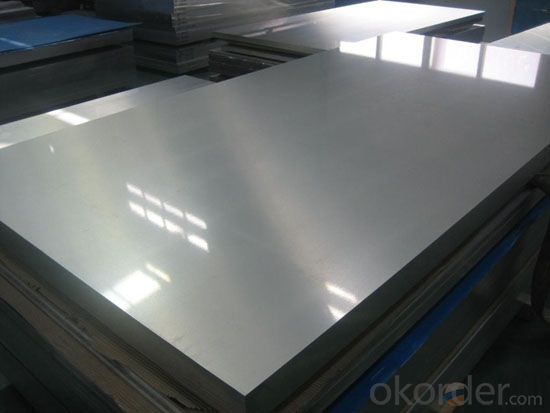
- Q:Can aluminum sheets be used for curtain walls?
- Yes, aluminum sheets can be used for curtain walls. Aluminum is a popular choice for curtain wall systems due to its lightweight nature, durability, and corrosion resistance. Aluminum sheets can be easily formed into various shapes and sizes, making them suitable for creating the structural frame of curtain walls. Additionally, aluminum can be coated or anodized to enhance its aesthetic appeal and provide additional protection against weather elements. This makes aluminum sheets a versatile and practical material for constructing curtain walls in commercial and residential buildings.
- Q:Are the aluminum sheets corrosion-resistant?
- Indeed, aluminum sheets exhibit resistance to corrosion. When aluminum is exposed to oxygen, a protective oxide layer naturally develops, effectively inhibiting corrosion. This oxide layer acts as a shield, separating the aluminum from its surroundings and granting the sheets exceptional resistance against corrosion. Moreover, aluminum sheets can undergo additional treatments such as coatings or anodizing processes, further amplifying their resistance to corrosion. Consequently, aluminum sheets are widely favored for applications where the necessity for corrosion resistance is paramount.
- Q:What is the atomic mass of aluminum?
- The atomic mass of aluminum is approximately 26.98 atomic mass units.
- Q:just bought a hobart handler 140 (already love it), and was just wondering on what gas to use for aluminum. my welder will be set up for mild steel (75% argon 25% CO2). it would be nice to be able to use this mix with aluminum as well, as it would be easy to just switch spools of wire, but the manual says to use a 100% argon mix when welding with aluminum. will the 25% CO2 make a difference welding aluminum?
- Get the kit which will have new drive wheels and the liner, and get the right gas, and don't plan on using any thin aluminum, I was never able to have fine enough control on my machine to get it to work well on anything less than 1/8 material. Also, you will probably buildup too much heat and burn through if you try to go far, weld about 1 at a time and let the material cool. Your machine and mine are just barely on the edge of being capable of doing this. It is nearly impossible to dial it in to a reliable point.
- Q:What are the different types of alloys used for aluminum sheets?
- Aluminum sheets can be made from different types of alloys, each with its own unique properties and uses. Here are some of the most commonly used ones: - The 1100 alloy is pure aluminum and has excellent resistance to corrosion and good formability. It is often utilized for general sheet metal work like roofing and siding. - The 3003 alloy is similar to 1100 but contains added manganese, which makes it slightly stronger. It is commonly employed for applications that require moderate strength and good resistance to corrosion, such as packaging and automotive parts. - The 5052 alloy is renowned for its exceptional corrosion resistance, particularly in marine environments. It is also highly formable and weldable, making it suitable for various applications like fuel tanks, marine components, and architectural panels. - The 6061 alloy is one of the most versatile and widely used aluminum alloys. It offers excellent strength, weldability, and resistance to corrosion. It is commonly found in structural applications like aircraft parts, bicycle frames, and automotive components. - The 7075 alloy is a high-strength alloy frequently utilized in aerospace and military applications. It exhibits excellent resistance to fatigue and is easily machinable. It is typically employed for aircraft structures, missile parts, and high-stress components. These examples illustrate the variety of aluminum alloys available for sheet production. The choice of a specific alloy depends on desired properties, such as strength, resistance to corrosion, formability, and cost, as well as the intended application.
- Q:We just bought a house with aluminum wiring and we knew about it in the inspection report, but everyone kept telling us it's no big deal. There was so much going on and I didn't look into it myself and now I just surfed the web on it and I am filled with anxiety! Please help! Did we make a huge mistake? How common are the dangers? Also, my insurance company didn't ask me about wiring, but some sites said that they don't cover aluminum wiring. Should I ask them? I am so overwhelmed and scared. I do not want a fire for my family!
- All of these answers are good. There is a concern. I would suggest that if there is a question of security -- that you slip ( or get an electrician) to slip each switch and outlet out of the wiring box and tighten the connections. As for the racoons, there are simple and pretty much low cost (under 30 bucks, voltage sensors at your local electrical supply, and maybe at Home-Depot. These really nice devices sense the presence of AC electricity in the wall, even locating the actual point where the electricity stops at a break! This is a do-it=yourself project.
- Q:How does aluminum sheet perform in corrosive environments?
- Aluminum sheet performs exceptionally well in corrosive environments due to its intrinsic corrosion resistance. It forms a thin, protective oxide layer on its surface, which acts as a barrier against further corrosion. This oxide layer, known as aluminum oxide, is highly stable and prevents the underlying metal from being affected by moisture, chemicals, or other corrosive elements. In most common corrosive environments, such as air, water, and mild acids, aluminum sheet is highly resistant and maintains its integrity for extended periods. It does not rust or corrode like other metals, such as iron or steel. This makes aluminum an ideal choice for applications exposed to moisture or harsh atmospheric conditions. However, aluminum may be susceptible to corrosion in certain aggressive environments, such as highly acidic or alkaline solutions. In these cases, the protective oxide layer may dissolve, leading to localized corrosion known as pitting. To mitigate this risk, aluminum can be alloyed with other elements like magnesium or zinc to enhance its corrosion resistance. Overall, aluminum sheet is widely recognized for its excellent performance in corrosive environments, making it a preferred material for various applications, including marine, construction, automotive, and aerospace industries. Its lightweight nature, coupled with its corrosion resistance, makes aluminum an attractive option in environments where durability and longevity are critical.
- Q:How does the price of 101 aluminum sheets compare to other aluminum alloys?
- The cost of 101 aluminum sheets may fluctuate based on various factors like market conditions, demand, and supply. Nonetheless, in general, 101 aluminum alloy is regarded as one of the more affordable choices among aluminum alloys. It is a popular option due to its relatively low price and satisfactory overall performance. When compared to other aluminum alloys, particularly high-strength alloys like 7075 or 6061, 101 aluminum sheets tend to be less expensive. This is because 101 aluminum is a relatively uncomplicated alloy with a lower content of alloying elements, resulting in lower production costs. However, it is important to note that the price difference between aluminum alloys can vary depending on current market conditions and specific requirements. Factors such as sheet thickness, size, and quantity can also impact the final price. Therefore, it is always advisable to consult suppliers or manufacturers to obtain the most accurate and up-to-date pricing information for 101 aluminum sheets in comparison to other aluminum alloys.
- Q:Can aluminum sheet be used for roofing?
- Yes, aluminum sheet can be used for roofing. Aluminum is a popular choice for roofing due to its numerous advantages. Firstly, aluminum is lightweight, making it easier to install and reducing the load on the structure of the building. Secondly, aluminum is highly durable and resistant to corrosion, which means it can withstand harsh weather conditions, such as heavy rain, snow, and UV radiation. Additionally, aluminum is non-combustible, making it a safe choice for roofing. Furthermore, aluminum is an environmentally friendly material as it is 100% recyclable, reducing its impact on the environment. Overall, aluminum sheet is a reliable and efficient option for roofing applications.
- Q:Can I bake falafel patties in the oven using an aluminum foil on top of the pan I am using to put in the oven? Will the aluminum foil catch fire in the oven? Also, if I put the aluminum foil I wouldn't have to grease up the foil with oil...the patties just wont stick to aluminum foil right?
- Aluminum foil is just the metal called aluminum which has been pressed into a very thin sheet (foil), and metals won't melt or catch fire here and there till they get extremely hot (in huge furnaces). A home oven is waaay too cool for that. As for sticking, that depends on whether the foil is touching your patties and how much, as well as which ingredients you used in the patties since some will carmelize or dry out onto the foil but only where they contacted. You can always tent or make a dome with the foil so it doesn't touch any of the food though if you're concerned. Not sure why you'd be covering falafels though, since that will steam them (at least partly) not bake, them and therefore not create a crispy exterior.
1. Manufacturer Overview |
|
|---|---|
| Location | |
| Year Established | |
| Annual Output Value | |
| Main Markets | |
| Company Certifications | |
2. Manufacturer Certificates |
|
|---|---|
| a) Certification Name | |
| Range | |
| Reference | |
| Validity Period | |
3. Manufacturer Capability |
|
|---|---|
| a)Trade Capacity | |
| Nearest Port | |
| Export Percentage | |
| No.of Employees in Trade Department | |
| Language Spoken: | |
| b)Factory Information | |
| Factory Size: | |
| No. of Production Lines | |
| Contract Manufacturing | |
| Product Price Range | |
Send your message to us
Cold Rolled Steel Sheets Wholesale from CNBM
- Loading Port:
- China main port
- Payment Terms:
- TT OR LC
- Min Order Qty:
- 20 m.t.
- Supply Capability:
- 1000 m.t./month
OKorder Service Pledge
OKorder Financial Service
Similar products
New products
Hot products
Hot Searches
Related keywords
